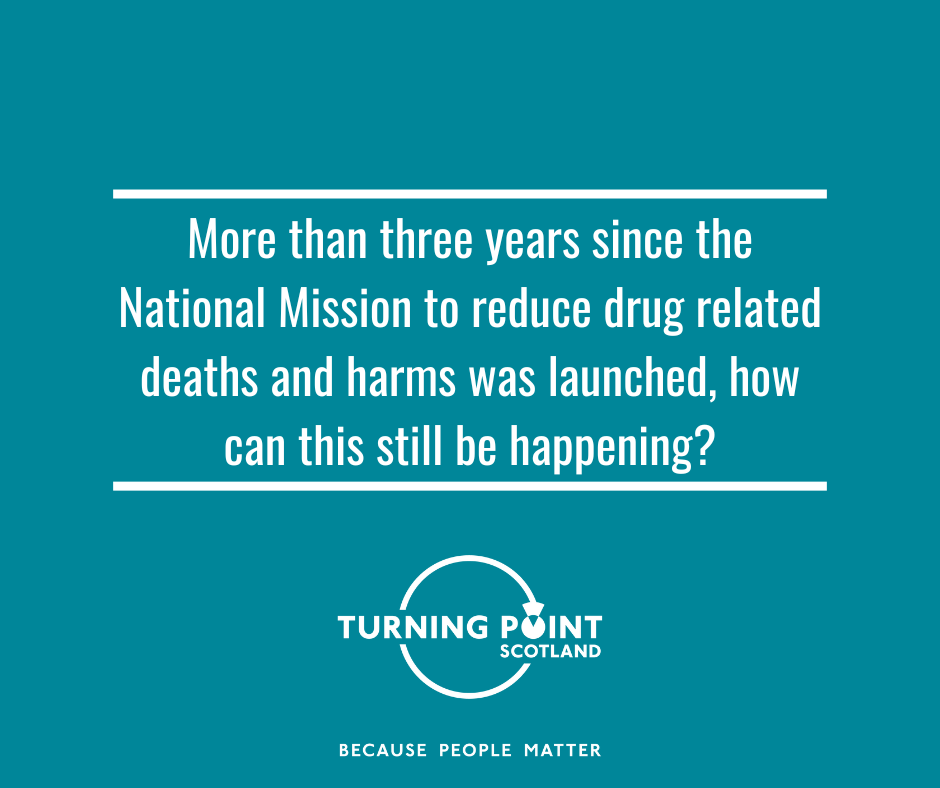1,172 more people have died because they used drugs. Our thoughts are with the families, friends and communities who have lost people unnecessarily.
More than three years since the National Mission to reduce drug related deaths and harms was launched, how can this still be happening?
There will be a lot of finger pointing today, a lot of anger that despite record levels of investment and attention, our treatment and support services are failing too many people.
We share that anger. We are part of that treatment and support system, part of the work to build and deliver the services that people need, and we are frustrated at the lack of focus, urgency and leadership that this crisis demands.
Investment made in Test of Change projects – new services designed to fill the gaps in the system identified by frontline workers – has not been followed through in any consistent way. Investment in residential stabilisation services – offering support for people to address the most pressing issues around their alcohol and other drug use, to consider and prepare for their next steps – has not materialised. Drug checking services, Heroin Assisted Treatment, Safer Consumption Facilities – have all received warm words from the Government, but we have not done enough to deliver these vital services throughout Scotland.
There are lots of ways in which we need to strengthen our treatment and support system, and lots of ways in which we can question the impact of the National Mission, but that’s not all that’s needed. Problematic alcohol or other drug use is a symptom of a much broader social sickness. The rise in drug related deaths might be better understood as part of the wider rise in deaths of despair.
A drug related death does not result only from things within an individual’s control, nor is it only a result of a medical condition that needs to be treated. It can be all of these things, but we are not talking about the other things at play. We have not yet done enough to look at the way we think about, speak about and treat people who use drugs in our society, and the impact this can have on that person’s risk of harm.
Today it’s right to think about the people we’ve lost, they are people who were failed, but we are not going to prevent future harm by only thinking about the person. Drug treatment and support services must be there to respond to risk of harm – but we need much broader thinking if we are to prevent that risk from arising. We need to reflect on the way we think about and value people who use drugs, how we will challenge the social and structural issues that contribute to their risk of harm while they are living, not just after they have died.

